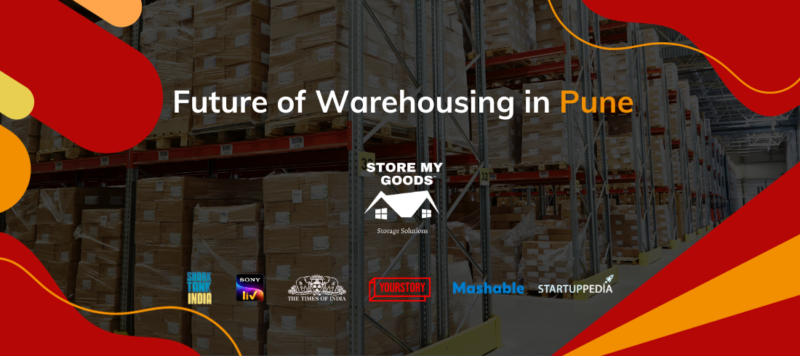Future of Warehousing in Pune: Trends Shaping the Logistics Landscape
Pune, India’s seventh-largest city and an emerging industrial hub, is witnessing a boom in its warehousing sector. With its strategic location, robust infrastructure, and skilled workforce, Pune is attracting leading e-commerce, manufacturing, and logistics companies. However, to stay ahead in the competitive warehousing landscape, Pune needs to embrace the future – the future of smart warehouses and data-driven decisions.
What are smart warehouses?
Smart warehouses are not just about storing goods; they are about optimising every aspect of the warehousing process through automation, robotics, and real-time data analytics. Imagine a warehouse where:
- Autonomous robots: navigate aisles, retrieve items, and pack orders, minimising human error and increasing efficiency.
- Drones: zip through the warehouse, conducting inventory checks and ensuring optimal stock levels.
- Internet of Things (IoT) sensors: track temperature, humidity, and other environmental factors, ensuring optimal storage conditions for goods.
- Real-time data dashboards: provide insights into inventory levels, order fulfilment times, and potential bottlenecks, enabling data-driven decision-making.
Benefits of smart warehouses in Pune:
- Increased efficiency and productivity: Automation and robotics can significantly reduce operational costs and lead times.
- Improved accuracy and reduced errors: Real-time data tracking and automated processes minimise human error and ensure order accuracy.
- Enhanced space utilisation: Optimised layouts and automated storage systems can maximise storage capacity in warehouses.
- Better responsiveness to market demands: Real-time data analytics enable dynamic inventory management and faster order fulfilment, meeting the ever-changing needs of customers.
- Sustainability: Smart warehouses can optimise energy consumption and reduce waste, contributing to a greener supply chain.
Data-driven decisions for smarter warehousing:
Data is the lifeblood of smart warehouses. By collecting and analysing data from various sources, including sensors, robots, and order management systems, companies can gain valuable insights into their warehousing operations. This data can be used to:
- Optimise inventory levels: Prevent stock-outs and overstocking by forecasting demand and maintaining optimal inventory levels.
- Plan efficient routes for robots and drones: Reduce movement and energy consumption by optimising robot and drone paths within the warehouse.
- Predict and prevent equipment failures: Use predictive maintenance to identify potential equipment issues before they occur, minimising downtime and disruptions.
- Identify areas for improvement: Analyse data to identify bottlenecks and areas for improvement in the warehousing process.
The future of warehousing in Pune:
Pune is well-positioned to become a leader in smart warehousing. The city’s IT infrastructure, talent pool, and proximity to major manufacturing hubs make it an ideal location for implementing these technologies. Several initiatives are already underway, such as the development of smart logistics parks and the adoption of IoT solutions by warehousing companies.
Challenges and the way forward:
While the potential of smart warehouses is immense, there are also challenges that need to be addressed. These include:
- High initial investment: Implementing smart warehouse technologies requires significant upfront costs.
- Data security and privacy concerns: Collecting and managing large amounts of data raises concerns about security and privacy.
- Lack of skilled workforce: Operating and maintaining smart warehouses requires a workforce with specialised skills in automation, robotics, and data analytics.
To overcome these challenges, collaboration between government, industry players, and educational institutions is crucial. Government can provide incentives for adopting smart warehouse technologies, while industry players can invest in training programs to develop the necessary skills.
Conclusion:
The future of warehousing in Pune is bright, shaped by the integration of smart technologies and data-driven decision-making. By embracing these advancements, Pune can not only enhance its warehousing efficiency and competitiveness but also pave the way for a more sustainable and resilient supply chain.






 A-23, A-Block, Sector 83, Noida Pin Code - 201305
A-23, A-Block, Sector 83, Noida Pin Code - 201305
 +91 9311806600
+91 9311806600
 contact@storemygoods.in
contact@storemygoods.in Hours: 9:30AM - 8:00PM
Hours: 9:30AM - 8:00PM
No Comment